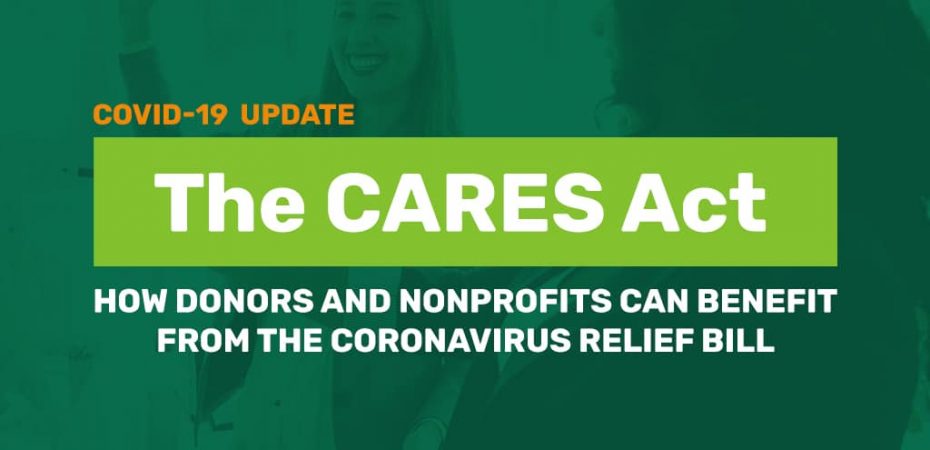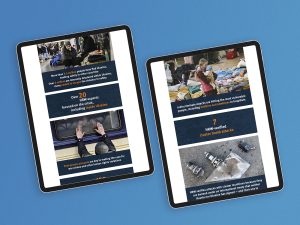On the night of Thursday, March 26, the Senate unanimously passed the Coronavirus Aid, Relief, and Economic Security (CARES) Act. This sweeping, $2 trillion package went on to be passed by the House of Representatives on Friday, March 27, with a commitment from President Trump to sign it immediately when it reaches his desk.
For individuals, families and businesses, this is a significant step to providing relief and security during troubled times — and nonprofits are no exception, with substantial measures put into place to shore up our sector as we respond to and cope with the impacts of COVID-19.
But what exactly is included, and how can the CARES Act be accessed for the greatest impact for you and your donors?
- For the vast majority of non-itemizing American taxpayers, an above-the-line deduction of $300 creates added benefits for charitable giving. We often celebrate the ability to deduct charitable gifts on a donor’s annual tax return, but in fact approximately 90% of Americans do not itemize their taxes and access that benefit. However, through 2020, all Americans will be able to access an above-the-line deduction of up to $300 on next year’s tax return, for all gifts made in 2020. This will not apply to gifts made to donor advised funds or any non-cash contributions, but it can be a great boon to contributions flowing to charities through this year — and it is certainly an opportunity worth promoting to your donors. This is also a provision that organizations could lobby to continue after recovery from the pandemic, providing an important boost to regular-level giving in the sector.
- For itemizing, high-dollar donors, normal limits on charitable deductions are suspended for 2020. When donors itemize charitable deductions, they are capped at the amount they are allowed to deduct each year — typically topping out at 60% of total income. But not in 2020! Helping to keep the tap flowing on large, significant gifts, donors will be able to deduct up to 100% of their adjusted gross income. Many major donors are savvy in understanding the limitations of charitable gift deductions in regular years, and so it can be an important step to make them aware of this change, both for their benefit and the benefit of your organization.
- Corporate contributors have elevated caps on charitable deductions for 2020, up to 25% of taxable income on cash contributions and food donations. Similar caps on itemized contributions from corporate donors are in place in normal years, typically 10% of adjusted gross income for cash contributions and 15% for food donations. Reaching out to existing partners can be an important step in securing additional support in this time. This includes outreach to those who may have been sponsors for cancelled events, seeing if they would be open to converting their sponsorship into a straight donation to the organization instead.
- Emergency Small Business Loans offer operating support, with guidelines for loan forgiveness that could essentially convert that loan into a general operating grant. Nonprofits with 500 or fewer employees that existed prior to March 1, including those that receive Medicaid payments for their services, are eligible to apply for small business support loans to cover payroll and facilities costs, as well as debt servicing. If all staff are kept on payroll between March 1 and June 30, this loan can be forgiven — in essence transforming the loan into a general operating grant. Forgivable loans can be taken out for up to $10 million. For groups with more than 500 staff but fewer than 10,000, loans are also available without the loan forgiveness provision. However, no payments are required or interest accrues for the first 6 months, and interest is capped at 2%. Staff must be retained or rehired, with full compensation, to at least 90% of previous staffing levels to be eligible.
These provisions can work in multiple ways to help your organization through the coronavirus pandemic, whether you are in a subsector active in relief efforts or not. In particular, you have a great opportunity to communicate with your donors about how they can benefit from these provisions while helping your team stay strong through the immediate response phase, and be well positioned to return to business-as-usual once we begin to recover.
If you are wondering how best to communicate with your different audiences about these provisions and more during the coronavirus pandemic, you can always reach out to our team with your questions — we are here to help.




